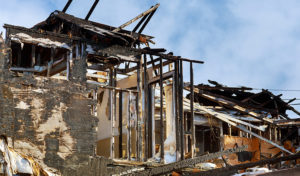Many HOA board members and residents question the importance of proper homeowners association insurance. Maintaining the correct types and limits of HOA insurance, though, offers a safety net that shields your association from unexpected and possibly disastrous losses.
In this article:
What Is HOA Insurance?
No matter how hard you try to prevent them, accidents do happen. People can slip and hurt themselves in your swimming pool area, children can suffer injuries in the playground, and damages to common elements can take place. These circumstances can result in someone — a homeowner, employee, or guest — filing a claim against the HOA.
This is where HOA insurance, often referred to as an HOA master insurance policy, comes in. What is a master policy? A master policy is a type of insurance policy homeowners associations purchase to ensure coverage in case of liability expenses or repairs to common areas.
Does a Homeowners Association Need Insurance?
Homeowners associations need proper insurance coverage to protect the association itself and its members. Some states, such as Arizona, have insurance requirements for HOAs and condos. Many HOA governing documents, particularly newer associations, also establish the need for insurance.
Without HOA insurance coverage, the association will need to dip into its own funds to pay for legal fees and settlement amounts. Even if the HOA comes out of a lawsuit in victory, the costs of legal counsel and defense can still add up.
But, a master insurance policy for homeowners association does not stop there. It is also essential in the event of property damage caused by unforeseen circumstances. Some examples include earthquakes, floods, and hurricanes. Without proper coverage, the HOA will need to pay for the expensive replacements or repairs out of pocket.
What Does HOA Insurance Cover?
 A typical HOA master policy will cover two areas: Liability and property damage.
A typical HOA master policy will cover two areas: Liability and property damage.
Liability refers to expenses associated with legal action against the association. For example, if someone injures themselves on HOA property and decides to slap a lawsuit against the HOA, then the liability portion should have you covered. Defending your association from a lawsuit can be expensive, and proper homeowner association liability insurance can prevent you from imposing hefty special assessments to cover the cost.
Property damage, on the other hand, refers to physical damages to HOA buildings or common areas. For example, if a fire damages your clubhouse, and your policy covers it, then you can claim those damages. That means your insurance provider will cover the cost of repairs.
The extent of coverage can vary from policy to policy. Some offer comprehensive coverage, while others only cover the bare minimum. Not all policies, for instance, cover fires or floods. It is important to check your own HOA insurance policy to see what items are covered. From there, you can decide whether or not it is necessary to upgrade your policy.
HOA Insurance vs Condo Insurance
Navigating insurance is usually trickier when it comes to condominiums. Within the setting of a single-family HOA, there is a pretty line distinguishing which properties are covered by your homeowners association policy and which ones are covered by individual homeowner insurance. The same cannot be said for condo associations.
Within a condo setting, owners share walls, floors, and ceilings. Hence, figuring out which policy covers what item can come as a challenge. So, what does a condo association insurance policy cover?
Generally, condo owners should have their own insurance, known as HO6 insurance, to cover the interiors of their units. This works in coordination with the condo association’s own insurance, which can fall under one of two main types:
- Bare Walls Coverage. This condo insurance policy covers the structure of the condo building. It also ensures everything inside the walls, such as wiring, plumbing, and insulation. With a bare walls policy, condo owners need not worry about insuring their own walls.
- All-in Coverage. This condo insurance policy is more comprehensive, adding coverage for installed features such as countertops and appliances on top of a bare walls policy. Condo owners should check whether or not their association has this type of policy and what it covers. This way, there is no overlap.
HOA Insurance vs Homeowners Insurance
Even with an HOA master policy, homeowners will still need to purchase homeowners insurance. A typical HOA insurance policy will only cover liability and property damage to common areas. Homeowners need something that also protects the structure of their home as well as their belongings.
Some master policies do extend to homeowner property, but they are very few and far between. Homeowners should take the time to get to know the HOA’s insurance policy and what it covers. That way, they can obtain the right policy for their own homes.
Importance of Adequate HOA Insurance Coverage
Simply owning HOA insurance is not enough. Associations must also make sure that they have sufficient coverage for the community’s needs.
Far too often, HOAs grow complacent and feel that their liability insurance is enough to protect them, only to find out later on after an accident has happened that their policy actually does not cover it.
A majority of insurance policies renew on an annual basis. Thus, you should see to it that you review your own HOA insurance policy every year. This way, you can identify what situations are covered and determine whether or not you need additional coverage.
It is equally important to maintain a good working relationship with your insurance broker. This person is your main point of contact. In case you need to make a claim for the association or have any questions, your insurance broker is the person you call. Your broker can also assist you with HOA insurance requirements. Since your broker plays a pivotal role, you must look for someone trustworthy and someone who puts the needs of the community ahead of their own interests.
How Much Does HOA Insurance Cost?
The cost of homeowners association insurance coverage varies wildly depending on a number of factors. The size and nature of your common areas, the number of homes, and the extent of your coverage can all affect the price of your annual premiums. Location can also play a role in determining how much you need to shell out.
For small associations, a standard $1,000,000 to $2,000,000 general liability policy can cost anywhere between $57 to $79 a month. That equates to $684 to $948 a year.
Who Pays for HOA Insurance?
The cost of HOA insurance premiums are included in the monthly dues homeowners pay to the association. Homeowners get an equal share of the common areas of the HOA. Therefore, it makes sense for homeowners to divide the cost of HOA insurance equally among themselves as well.
Keep in mind that board members are not spared from paying monthly dues. After all, board members are just homeowners who have volunteered to help run the association. They don’t get special treatment.
Other Essential Insurance Policies
Your master policy, while comprehensive, is certainly not enough on its own. There are other liabilities you need to ensure coverage for. Apart from a homeowners association master insurance policy, what other policies are essential to an HOA?
Property Value and Replacement
 Most governing documents require associations to be insured for a minimum value. In most cases, that is the full replacement cost of the property. There are three types of building ordinance coverages, namely Contingent Liability, Demolition, and Increased Cost of Construction.
Most governing documents require associations to be insured for a minimum value. In most cases, that is the full replacement cost of the property. There are three types of building ordinance coverages, namely Contingent Liability, Demolition, and Increased Cost of Construction.
- Contingent Liability. This type of insurance covers undamaged portions of the property. As such, if a portion of a building becomes damaged, the insurance coverage will cover the cost of replacing that portion.
- Demolition. As its name suggests, this type of insurance covers the cost of demolition.
- Increased Cost of Construction. This type of insurance covers building code upgrades or the increased cost of construction. As such, if local ordinances require a damaged building to have certain upgrades once reconstructed, this policy should provide the HOA with coverage.
D&O Insurance
When homeowners become disgruntled and pursue legal action against the HOA, nothing is stopping them from naming individual board members in their lawsuit. Should that happen, the Directors and Officers (D&O) insurance provides coverage for both the association and its board members. In some cases, D&O insurance, also known as HOA board insurance, can even cover HOA committee members or personnel.
Miscellaneous Coverages
There are other types of insurance coverages that your HOA should look into. This includes Workers Compensation, Third Party Bodily Injury Coverage, Third Party Property Damage Coverage, Flood, Employment Practices Liability (if you have employees), and Coverage for Personal Injury.
Take Time to Review Your HOA Insurance Coverage
Preparation is paramount when it comes to HOA insurance. As a board member, you want to ensure your policy provides your association with adequate coverage in the event of damage or loss. Some people might scoff at insurance, deeming them unnecessary or trivial. But, the fact of the matter is, insurance is essential and one worth spending money on.







